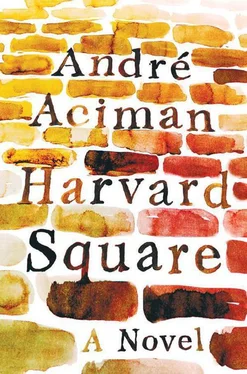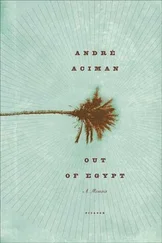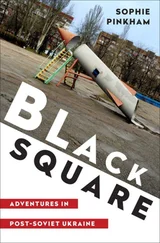I wanted to go back now and tiptoe my way into her apartment, climb into bed with her, and hold her tight to me, and, as we’d hug, begin to make love, for she too loved sex that sprung in mid-sleep, rough, blind, beastly sex that grew ever so tender the more we awoke to what our bodies had started.
But I didn’t have a key to get back in, and I was too embarrassed to ask Kalaj to drive me back.
“Why did I do it?” I finally asked him.
“Because you couldn’t stand it, because you were choking, that’s why. Perfectly understandable.”
No, it was not understandable. Choking was just a word, a metaphor, a nothing. I myself had found the word crawling under my pillow that very same night. It was not an answer, not an explanation, yet it seemed the only one at hand, and the only word that said everything despite my mistrust of words. Why had I left her? Because I was living someone else’s life, not mine. Because I wanted my life back, even if I didn’t know what my life was or what I even wanted it to be. Because I wanted to be alone, or not with her, or with someone else, or, better yet, with no one at all. Because I wanted to find something of me in others only to realize that others were never going to be like me and ultimately had to be unclasped, thrown out, exploded, because estrangement is branded on the soul, because love itself was foreign to me, and in its place sat resentment and bile. Why had I even started with her? To be with someone instead of no one? To be like him? Or was I already, had always been like him, but in so different a guise that it was just as easy to think us poles apart? The Arab and the Jew, the ill-tempered and the mild-mannered, the irascible and the forbearing, the this and the that! And yet, we came from the same mold, choked in the same way, and in the same way, lashed back, then ran away.
He listened to my musings as though I were reciting a delirious poem. Then he shook his head and came back to his favorite word. “It just never took. The gluten never stuck.” The onetime baker in him had spoken.
In the quiet car with its twenty-four-hour music playing en sourdine , I thought about his four words. I liked them. As if love affairs were puddings and soufflés; sometimes things took , sometimes they didn’t, and sometimes they just curdled, and there was no one to blame and nothing you could do.
A second later, I realized that the same could be said about everything else in my life, and his as well. Nothing seemed to take . Even our friendship…
“Do you really like being alone?” he asked.
“No.”
He understood this too. No need for words. He dropped me in front of my building.
I offered to make coffee if he wanted, but he said he might as well keep driving his cab until sunup today. He hadn’t yet gone to bed when I’d called. He seldom slept. Besides, it was early on a Sunday morning, and people were still coming out of clubs and after-hours bars. Plenty of money to be made on a Sunday morning.
As he drove away, I began to think that what kept us together was perhaps not even our romance with an imaginary France. That was just a veneer, an illusion. Rather, it was our desperate inability to lead ordinary lives with ordinary people anywhere —ordinary loves, ordinary homes, ordinary careers, watching ordinary television, eating ordinary meals, with ordinary friends — even ordinary friends we didn’t have, or couldn’t keep.
We were not outcasts. We were untouchables. No one knew it except us. Harvard helped me hide it so well that entire weeks, sometimes months went by without my getting a whiff of it even once, let alone allowing someone else to glimpse it. Kalaj hid it in plain sight: by shouting it to everyone he ran into.
When I opened the door to my apartment, I realized that I had scarcely seen my home at night in a very long time. It felt unfamiliar. I was more at home with Niloufar off Putnam Avenue than here. And yet neither place felt right. No wonder Kalaj preferred to drive about all day and hang out in a Cambridge dive than face his own bedroom. I fell asleep with my clothes on and the smell of Niloufar’s bed mingling with my own.
THAT SUNDAY WAS probably the worst day of my life. I had no food in the house. I was exhausted, and I had twenty-four hours to master Chaucer before my appointment with Lloyd-Greville. The thought of taking even twenty minutes to go out to find something to eat was out of the question.
Later in the morning the phone began to ring. I knew who it was and decided not to pick up. I could hear my phone ringing all the way up on the roof terrace, where I planned to spend a few hours before hunkering down to type up my notes on Chaucer. I was to meet Lloyd-Greville the next day at 10:00 a.m. By staying upstairs, though, I knew I was also hiding. Cruel, heartless, cowardly. Linda, who happened to be upstairs on this clear, warm, lovely Indian summer day and whom I hadn’t seen since I’d been more or less living elsewhere except for an occasional stop to pick up or bring back books and a few items of clothing, could tell it was my phone ringing. “Why aren’t you answering?” she finally asked. Then she guessed why. “Will she ever stop calling?” By noon, while we were mixing our second Tom Collins in my kitchen, she asked, “Want me to pick up?” I couldn’t do that to a woman who had been my soul mate. Finally Linda grabbed my phone and placed it in the bathroom, shutting the door tight behind it, like a misbehaving pet that was being punished. I wanted her to remove her light blue tank top and the bottom of her bikini and without waiting proceed to my bedroom. I loved her body, loved the untrammeled sex, savage, selfish, and without meaning. I wanted her to erase the other woman in my life; I wanted to kiss her face, her mouth, and with that face bury the other as one might bury a Tanagra statuette that had become unbearable and stirred not a drop of guilt, pity, love, or even ordinary anger, but just this thing that scared me more, because it impugned me, not her: indifference. Or worse yet than indifference: numbness, first of the heart, then of the body. Hating, by contrast was far, far kinder — and perhaps there was a touch of hatred already in me as well, for hatred helps us forget and covers up the wounds we leave on others as fast as it helps heal those they’ve inflicted on us. “You don’t want to hurt her,” Linda said. “It’s because you’re kind.” No, it’s because I’m a coward, I wanted to say. But I didn’t say anything.
KALAJ DROPPED BY to visit me that afternoon. He had frequently gotten into the habit of coming by, knowing the door was never locked.
“The one thing no man should ever do is feel sorry for a woman. You always live to regret it,” he said. “It destroys her, and it destroys you.”
I could barely think of Niloufar at all. It was the last day for going over Chaucer, and I was hopelessly behind. “Can I do anything to help?” Kalaj finally asked.
“No, you can’t help.” And then it hit me: “Or maybe you can.”
The idea seemed a stroke of genius.
“I need two editions of Chaucer’s complete works,” I said.
“And how will I find them?”
I wrote down the approximate call number of the books and gave him my library card to borrow the books with. I told him where exactly to look for them inside the Widener Library stacks and suggested he take out any other books about Chaucer sitting on the stacks.
He had never been inside Widener, didn’t know where or what Widener was.
“Past the gate on Mass Ave between Plympton and Linden Streets,” I explained in cab lingo.
“That’s it?”
I nodded.
With that he sped down the stairs.
I was hungry, ravenous. I could knock at Linda’s, but she had probably already gone to the library. Strange thing: I felt more comfortable asking Kalaj to run an errand at a place he’d never even been to than Linda, who was right now in the very stacks where I was sending Kalaj.
Читать дальше












